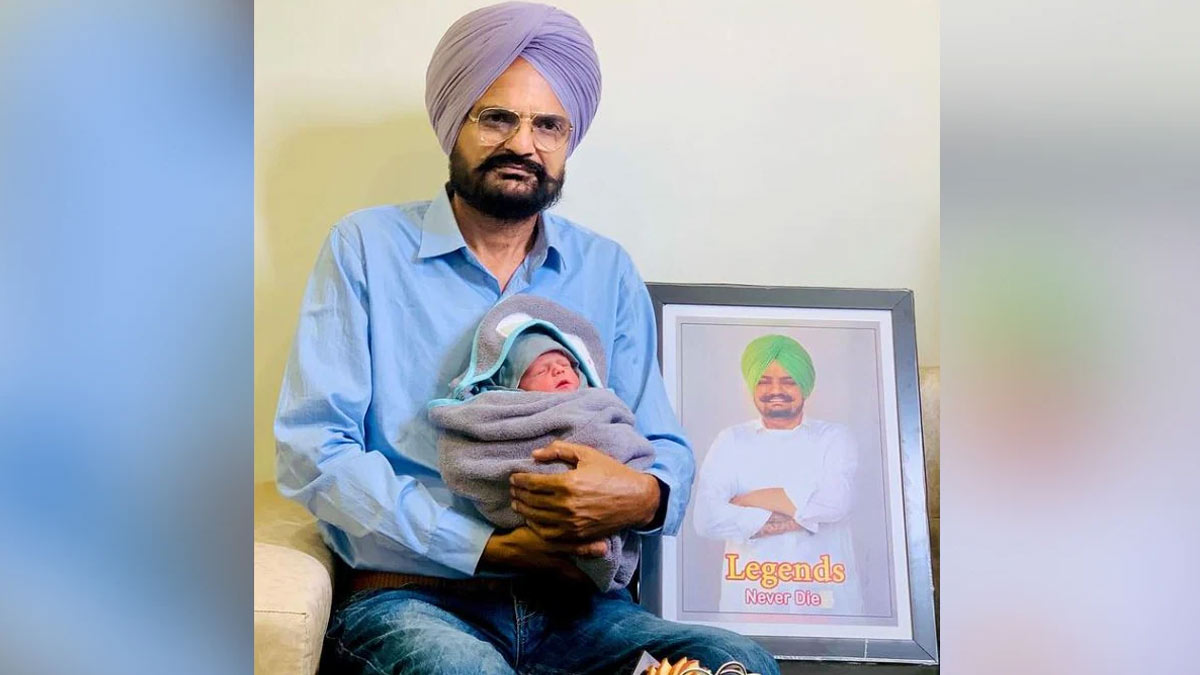
Charan Kaur, the mother of Shubhdeep Singh Sidhu, more famously known as Siddhu Moose Wala, the late Punjabi singer and rapper, recently gave birth to her second son through In-Vitro-Fertilation (IVF). What was supposed to be a happy occasion, which was needed after the sad demise of Moose Wala in May 2022, was soon shrouded by claims of harassment and illegality.
Table of Content:-
Turns out, Moose Wala’s parents are too old for IVF as per Indian law. Charan Kaur is currently 58 and her Balkaur Singh, Moose Wala’s father, is 60. While seeking a report of Kaur’s IVF treatment, the Ministry of Health and Family Welfare (MoHFW) wrote a letter to the Punjab Government, citing the Assisted Reproductive Technology (Regulation) Act, 2021, which set the age limit for a woman to undergo Assisted Reproductive Technology (ART) services as 21-50 for women and 21-55 for men.
In return, Singh posted a video on Instagram, accusing the Punjab Government of harassment, and requesting the government to let him and his wife complete their post-partum treatments in peace. He stated that he has not broken any laws, and if he is not telling the truth, he will be happy to produce all legal documents following a proper investigation once an FIR is lodged against him.
While this is an unfortunate debacle that can incite many discourses, all of which have been circulating online, it majorly speaks to the fact that most of us are unaware of the IVF laws in India, unless we go ahead seeking the procedure. To explain these laws and the ART Act, of 2021, the OnlyMyHealth team spoke to Dr Vaishali Chaudhary, Director, IVF & Fertility, Sahyadri Super Speciality Hospitals, Pune.
View this post on Instagram
What Is IVF and ART?
According to the Society of Assisted Reproductive Technology, IVF, or In Vitro Fertilisation, is a type of assisted reproductive technology (ART), which refers to medical procedures used to help people conceive a child when they have difficulties with traditional conception methods. ART includes various techniques such as intrauterine insemination (IUI), gamete intrafallopian transfer (GIFT), and intracytoplasmic sperm injection (ICSI), among others, designed to assist in conception for individuals or couples facing infertility or other reproductive challenges.
IVF specifically involves combining an egg with sperm outside the body in a laboratory dish. If the egg fertilises and starts to develop into an embryo, it is then transferred to the uterus for implantation and potential pregnancy.
However, IVF may be a boon to society, especially to people dealing with infertility, there are laws which govern who can avail of IVF, which clinics or hospitals are authorised to perform IVF can be done, and who can perform IVF.
Currently, India is following the ART Bill, 2021, which “came into practice in the year 2022,” said Dr Chaudhary, and “was passed in the parliament on 25th December 2021, and we started implementing it in March 2022.”
“The laws have been translated to local languages, to avoid any confusion,” She added. Here’s what people must know about things to keep in mind before opting for IVF as a way to conceive their biological child.
Also Read: Preparing for IVF: Lifestyle Changes That Can Make a Difference

The Age Limit For IVF Treatment
Dr Chaudhary specified, “Any woman who is more than 21 and less than 50 can go for IVF in India.” This is the case when couples are not using a surrogate for conceiving a child. Yale Medicine defines surrogacy as a process where a woman (the surrogate) carries and gives birth to a baby for another person or couple (the intended parents). The regulations around surrogacy have been set as per the Surrogacy (Regulation) Bill, 2019.
“The intention behind setting this age limit is to prioritise the health of the woman undergoing pregnancy through IVF. To bear pregnancy after the age of 50 has a higher risk, and can also be life-threatening,” said Dr Chaudhary. She listed a few reasons why:
- One crucial aspect of the health of a fetus is that it receives good blood flow from the mother. This becomes difficult for women post 50 years of age, as they have a higher chance of unstable blood pressure, weak heart muscles, and risk of kidney failure.
- Any woman who is more than 35 years old has a high risk of miscarriage.
- As women get older, their eggs start deteriorating. Poor-quality eggs can lead to congenital problems in the baby, such as developmental anomalies, learning disabilities, and mental retardation. These complications mostly arise due to chromosomal abnormalities which are common in pregnancies of older women.
Also Read: Expert List Medical Conditions Under Which Surrogacy Is Recommended

How To Choose And Egg/Sperm Donor?
One obstacle that people who are looking for ART services often face, is a donor who will provide their eggs or sperms to the intended couple, in case the couple finds themselves unable to produce reproductive cells. Dr Chaudhary highlighted that the ART Act, 2021, also specifies laws that state who can be a donor.
- A female donor has to be between 23-35 years of age, while a male donor has to be between 21-55 years of age.
- The female donor must have atleast one child who is equal to or older than 3 years of age.
- Donors can donate only once in their lifetime. To ensure this, the donors are expected to submit their Aadhar Cards as proof, and their data is submitted to a national portal
- Female donors can only donate 7 eggs at a time.
- It is compulsory for the intended couple to provide insurance to the donors and cover their medical expenses.
- Donors have to undergo blood tests to prove they are healthy.
- The intended couple can get their own donor if they do not want to get eggs/sperm from a bank. But the bank will still hold authority over recruiting the donor after they have checked if the donor is fit.
- Sperm/egg donation has to be strictly altruistic and can not involve any monetary compensation or commercial transactions.
Also Read: Centre Amends Surrogacy Rules Surrounding Single Women And Donor Gametes, Here's What It Means

How To Choose An IVF Centre?
The ART Act, 2021 also specificies which clinics and experts can perform IVF in India. “There are strict rules which allow only specific centres and experts to be IVF specialists. Not any gynaecologist can become an IVF specialist. They need to have specialised degrees and minimum years of experience performing IVF under a certified expert’s supervision,” said Dr Chaudhary.
Similarly, “the laws state which equipments and experts a clinic must have to call itself an IVF centre,” she added. She recommended two things that you must note before choosing an IVF clinic:
- Make sure the IVF centre is authorised.
- Make sure the IVF centre has a counsellor who can educate you about the future of the baby being born, the health impact of undergoing IVF, and the cost, time duration, and success rates of IVF.
Also Read: Sidhu Moosewala’s Parents Welcome Baby Boy Through IVF; Must Follow Precautions After IVF Pregnancy
What Happens If You Don’t Follow India’s IVF Guidelines?
The ART Act, 2021, allows single mothers to avail of IVF, provided they use their own eggs. Also, couples are not allowed to have more than one child through IVF, or avail IVF if they already have one child. Moreover, couples can not determine the sex of the embryo.
Dr Chaudhary concluded that these laws were put in place to safeguard donors, the health of the baby and the woman bearing the child, and to avoid the commercialisation of egg/sperm donation and surrogacy. She underscored that if anyone fails to follow the Art Act, 2021, they will be fined upto Rs 5-10 lakhs. Subsequent violations will be met with 3-8 years of imprisonment and a fine of Rs 10-20 lakh.
Also watch this video
How we keep this article up to date:
We work with experts and keep a close eye on the latest in health and wellness. Whenever there is a new research or helpful information, we update our articles with accurate and useful advice.
Current Version